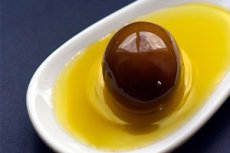Medical expert of the article
New publications
Fat substitutes
Last reviewed: 06.07.2025

All iLive content is medically reviewed or fact checked to ensure as much factual accuracy as possible.
We have strict sourcing guidelines and only link to reputable media sites, academic research institutions and, whenever possible, medically peer reviewed studies. Note that the numbers in parentheses ([1], [2], etc.) are clickable links to these studies.
If you feel that any of our content is inaccurate, out-of-date, or otherwise questionable, please select it and press Ctrl + Enter.

In an effort to reduce dietary fat intake, some individuals turn to products containing modified fat. In 1996, approximately 88% of the U.S. population consumed low-fat or fat-free foods and beverages. To meet these needs, food manufacturers have created a variety of ingredients called fat substitutes or fat analogs.
Fat substitutes or analogues
- no chemical similarity to fat
- reproduce the functional and sensory properties of fat
- energy value is less
- replacing all or part of the fat in a product
- partial reproduction of some properties of fat
- reducing the consumption of fat during frying.
Types of fat substitutes
Carbohydrate based:
- cannot be used for frying
- does not tolerate high temperatures
Microdispersed protein:
- provides a fat taste in the mouth
- cannot be used at high temperatures due to protein coagulation
Based on fats:
- Mono-diglycerides:
- change the composition of fatty acid
- reduce the overall energy content
- Fatty acids linked to sugar molecules:
- are not digested by intestinal enzymes
- heat resistant, can be used for frying
These substitutes were expected to significantly reduce overall fat intake. However, adding them to food does not replace dietary fat, so experts believe that fat in food can be safely reduced or replaced by using appropriate food processing techniques.


 [
[